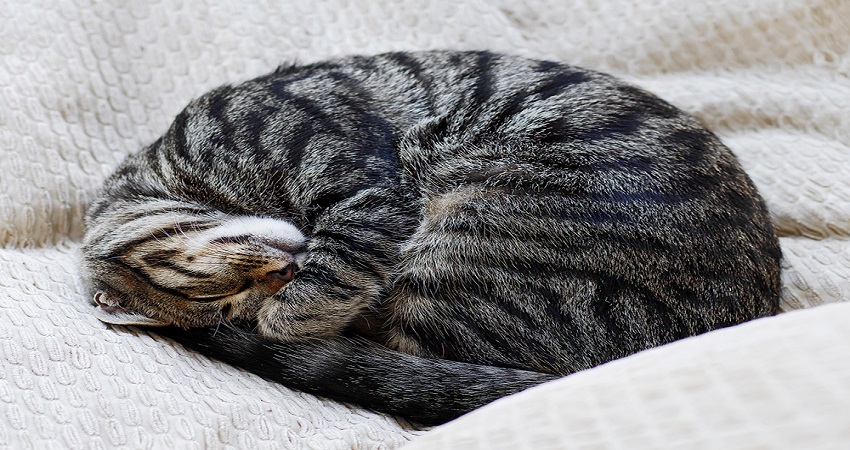Why Do Cats Sleep So Much? 7 Surprising Reasons
Cats are famous for their love of sleep, often napping up to 16 hours a day. This behavior isn’t just laziness; it’s deeply tied to their biology and instincts. Understanding why cats sleep so much can help you better care for your feline friend. Discover 7 Fascinating Reasons
1. Instincts of a Predator
Cats are natural hunters. Even domesticated cats retain the instincts of their wild ancestors, who needed to conserve energy for hunting. Sleep helps them recharge for short bursts of intense activity, like chasing toys or pouncing.
2. Crepuscular Rhythm
Cats are crepuscular, meaning they’re most active during dawn and dusk. Their sleep patterns are aligned with these peak energy periods, leaving much of the day and night for rest.
3. Energy Conservation
Cats burn a lot of energy when they’re active, whether it’s playing, hunting, or climbing. To balance this, they rest frequently, especially after meals, to recover and stay healthy.
4. A Survival Mechanism
In the wild, cats must remain alert even while sleeping. They often sleep lightly, ready to wake if they sense danger. You might notice your cat napping with one eye half-open or their ears twitching—this is their survival instinct at work.
5. Weather Affects Sleep
Cats tend to nap more on gloomy, cold, or rainy days. They naturally seek out warm, cozy spots, like sunlit windows or soft blankets, which encourage longer snoozes.
6. Stress or Health Issues
Increased sleep can sometimes indicate stress or health problems. If your cat starts sleeping much more than usual or shows signs like changes in appetite, grooming, or mood, it’s worth consulting a vet.
7. Part of Their Nature
On average, adult cats sleep 12–16 hours daily, while kittens and seniors may nap even more. This is a normal part of being a cat, fine-tuned over generations for survival and energy management. CatLoversBD
How to Support Your Cat’s Sleep Habits
- Provide a Safe Space: Cats need quiet, secure areas to rest. Offer comfortable beds or blankets in peaceful parts of your home.
- Respect Their Sleep: Avoid waking your cat unnecessarily, as this can cause stress or irritability.
- Encourage Play During Active Hours: Spend time engaging your cat with toys during dawn or dusk to match their natural energy cycles.
- Monitor Changes: If your cat’s sleep patterns suddenly shift, keep an eye on their overall behavior and consult a veterinarian if needed.
Fascinating Cat Sleep Facts
- Cats experience REM sleep, meaning they dream, just like humans. If you see twitching or soft meows during their nap, they’re likely dreaming of chasing something.
- Cats can nap in a semi-alert state, staying ready to react to threats.
- Lions, their wild relatives, sleep up to 20 hours a day, making cats’ napping habits seem mild by comparison. Discover 7 Fascinating Reasons
Conclusion
Cats sleep so much because it’s part of their nature, tied to their hunting instincts, survival mechanisms, and need for energy conservation. While their long naps might seem excessive, they’re perfectly normal for a feline. As a cat owner, respecting their sleep routine and providing a comfortable, safe environment will keep them healthy and happy.
Now, the next time you catch your furry friend snoozing, remember—they’re not just sleeping; they’re preparing for their next big adventure!

